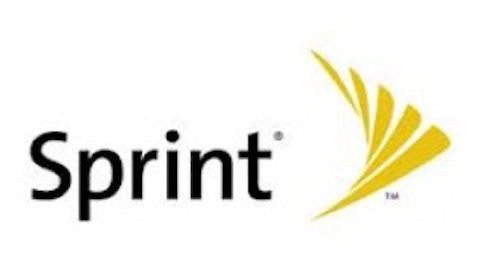Monday morning on Feb. 3 the Washington Post reported that the Federal Communications Commisison (FCC) approved the proposal to create a Wi-Fi network across the entire United States that would allow users to make phone calls and surf the web for no charge. This is good news for some, and bad news for others. In short, this could be a war for the ages.
It goes without saying that cell phone carriers such as AT&T Inc. (NYSE:T), Sprint Nextel Corporation (NYSE:S), Verizon Communications Inc. (NYSE:VZ), and T-Mobile are opposed to the idea. Nearly all of their revenue comes from the cell service they provide, and a variety of Wi-Fi options. One of the biggest questions people are asking is the type of quality that would be provided. In other countries such as Estonia, free Wi-Fi networks are provided nearly everywhere. However, often times in these situations the connection is slow and unreliable – meaning people stay connected to the company’s that offer better service.

Google Inc (NASDAQ:GOOG) and Microsoft Corporation (NASDAQ:MSFT) have already expressed excitement over the idea. In fact, because of the expensive prices other companies charge, Google Inc (NASDAQ:GOOG) has started developing a Wi-Fi system of their own called Google Fiber. Not only is it speculated to be cheaper than other systems, but approximately 100x faster than the average speed available to customers now.
While Google and Microsoft may be the front runners to partner with the FCC, this would not happen for quite some time. Currently, Google’s market cap is $254.2 billion, only $23.8 billion more than Microsoft’s. For investors worried about stocks being over-priced, that shouldn’t be a huge concern. Google shows a 5.2% FCF yield, with revenues increasing annually for over a decade, and are currently over 34x as large as a decade ago. Microsoft’s revenues dipped in 2009, but still increased nearly 230% for the decade. Microsoft seems to be much more discounted than Google with a 12% FCF yield.
Although it is hard to say how Apple Inc. (NASDAQ:AAPL) feels about this, they would likely want involvement of some capacity. Apple is working to implement a 802.11ac Wi-Fi into 2013 Mac models, though the chip is still in development. With ac providing many advantages such as better capacity, wider coverage, and more power efficiency, it allows speeds up to 1.3Gbps as opposed to the previous 450Mbps with 802.11n. Apple seems to be ahead of the curve with this technology, as it would not be hindered by countries that do not support gigabit internet connections. The 802.11ac would be useful world wide, with Apple products such as AirPlay and AirDrop.
Apple has refrained from any speculation for when the 802.11ac would be available in small devices such as iPad, iPhones, or Apple TV. It seems as though a national wireless network should benefit Apple unless it decreases the amount of iPhones sold. The iPhone is Apple’s most profitable device, and the company makes an estimated $440 per 16 GB device. Apple’s stock is pretty cheap – it boasts a 10.7% FCF yield.
The chart below shows why partnerships with the FCC could help these companies. Both Microsoft and Apple’s stock have struggled recently, declining in the past year. With the amount of money and publicity they would receive through a partnership with the FCC, it seems as though both could benefit.

Although this Wi-Fi system is fully approved, it would take a substantial amount of time to activate, even without lobbying from critics. At the time of this post, I have not heard any reaction from Apple, but both Google and Microsoft seem to love the idea.
The Foolish Bottom Line…
Everyone has a different opinion with what greed is, but let’s be honest, most companies want as much money as they can have. The Webster dictionary defines the word as, “a selfish and excessive desire for more of something (as money) than is needed.” Google, Apple, and Microsoft may not believe so, but they all have enough money. In the back of their minds they may all be saying, “What’s good for us is bad for them.” After all, one man’s trash is another man’s treasure.
The article Good News For Us, Bad News For Them originally appeared on Fool.com and is written by Tyler Wofford.
Copyright © 1995 – 2013 The Motley Fool, LLC. All rights reserved. The Motley Fool has a disclosure policy.





